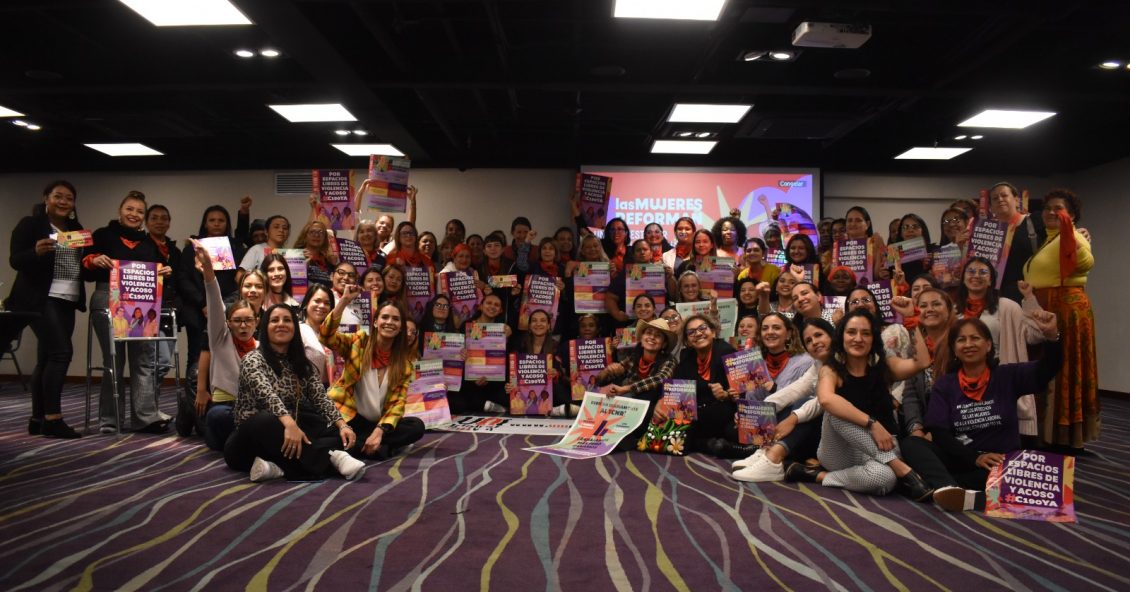Women leading the charge for labour reform in Colombia
09.03.23
This week, as part of International Women’s Day, UNI Americas organized the #LasMujeresReforman in a bid to reduce gender inequality in Colombia. The forum, supported by FES Colombia, was particularly important ahead of the widely anticipated labour reform that will be presented next week by the new government of Gustavo Petro.
At the forum, trade unions and social organisations urged the government to address structural gender inequality in Colombia, and stressed the importance of ratifying ILO Convention 190 against harassment and violence at work.
In Colombia, women earn 20% less and are often exposed to violence and harassment in the workplace. “We want the convention to be implemented by our affiliates, and to be able to use this tool to give a voice to marginalized workers in Colombian society,” said Marcio Monzane, regional secretary of UNI Americas.
“For the Ministry of Labour, it’s fundamental to talk about gender equity and labour gaps so that they can be included in the Reform,” said Magda Alberto, advisor on Equity, Equality and Women’s Rights at the Ministry of Labour.
The Ministry of Labour collected over 4,000 proposals from different social groups and organizations on the labour reform. The public consultation took into account the opinions of LGBTI+ workers and sex workers for the first time ever in Colombia and underlined the need for change on precarious work and informal labour contracts.
On this point Diana Salcedo, from the ILO Office in Colombia, said: “This labour reform must make open-ended contracts the fundamental rule of the employment relationship in order to provide job stability.”
As it stands, labour law in Colombia is only designed for workers who have a contract, and trade unions are seeking to include all forms of employment relationships in these new reforms.
UNI affiliates in Colombia have played an active role in pushing for labour reforms in the country. “We have created a labour agenda we intend to defend,” said Aida Garzón from ACEB. “We must take advantage of this historic moment and ensure that these labour reforms cut across all the major issues through education, legislation and training.”
Finally, Mafe Carrascal, representative to the Chamber of Deputies, concluded: “We have to show the world that we are ready to stand up and make a commitment to protect workers. We are going to push to ratify ILO Convention 190 and strive towards the world of work Colombia needs.”


